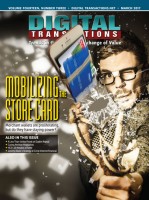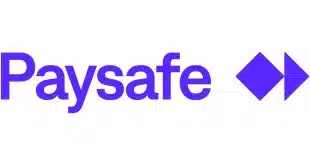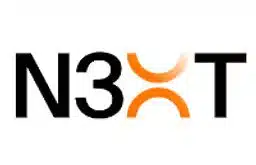Host card emulation had a moment in the sun a few years ago as Google and banks geared up their mobile wallets. Since then, HCE’s adoption has widened even as its public profile has faded. What’s next for the technology?
It just rolls off the tongue: “host card emulation.” As a conversation starter, it’s a term the nerdy stars of CBS’s long-running hit comedy The Big Bang Theory might use.
Host card emulation is a system that leverages near-field communication to make many mobile-payment systems go. The term burst into the consciousness of payments executives in late 2013 when Google included HCE in Android 4.4, also known as KitKat, at the time of the latest update of its mobile operating system (“A Candy-Coated Pep Pill for NFC,” December, 2013).

For mobile payments, the implications were huge. By bypassing the secure element and emulating in the cloud the hardware that holds payment credentials, HCE freed mobile-wallet providers from the fees and terms the mobile network operators or phone manufacturers that control the secure element can impose.
In this way, HCE opened up new opportunities for card issuers, merchants, and others seeking to develop Android-based mobile apps using NFC, a powerful and secure but, in the U.S. at least, underutilized contactless short-range communication technology (“NFC’s Cloudburst,” June, 2014).
“It is the lead dog for near-field communication on Android,” says Richard K. Crone of San Carlos, Calif.-based Crone Consulting LLC. “Host card emulation is the preferred pathway for processing … it’s the only open NFC platform.”
Android Pay, Alphabet’s successor to the original Google Wallet, of course uses HCE. So do the mobile wallets from such banks as Citigroup Inc., Capital One Financial Corp., JPMorgan Chase & Co., and Wells Fargo & Co., as well as PayPal Holdings Inc. HCE was the talk of the mobile-payments industry as mobile wallets and NFC gained traction, especially after Apple Inc. added NFC to its newest iPhones and unveiled its closed-loop Apple Pay service.
The year 2015 “was the year when activity based around HCE scaled up significantly, with more than 50 banks engaged in commercial deployments and, crucially, with Google relaunching its wallet in the form of Android Pay,” says “War of the Wallets,” a report from United Kingdom-based Juniper Research about the global mobile-wallet market.
The embrace of HCE by Google, now the main subsidiary of Alphabet Inc., also made SimplyTapp Inc. famous. A tiny Austin, Texas-based startup that had developed HCE’s technology over the preceding two years, SimplyTapp was able to go to market for expansion capital shortly after Google’s announcement.
“It’s clear in the payment industry HCE has taken off,” says Russell McCullagh, managing director at Rambus Ecebs, a developer of electronic ticketing systems based in East Kilbride, Scotland.
‘Much Faster, More Convenient’
Strangely, however, you don’t hear the term “host card emulation” so much these days. If anything, its use has grown, confirming McCullagh’s perception. Android by 2016’s third quarter had become the operating system used on nearly 87% of the world’s mobile devices, compared with 12.5% for Apple’s iOS, according to Framingham, Mass.-based IDC Research Inc.
What’s more, HCE is closely associated with tokenization, the replacement of the primary account numbers on debit and credit cards with random stand-in numbers, or tokens, that are useless to fraudsters. Backed by Visa Inc. and MasterCard Inc., tokenization is one of the cornerstones of mobile-payment security.
“HCE is just a way of handling tokenization through the cloud instead of the physical element into the phone,” says Mike Love, president of Mozido Inc., an Austin-based mobile-technology company that has invested in SimplyTapp.
So what’s ahead for HCE? The technology’s reach will expand as mobile-wallet usage, still low in the U.S. and Western Europe, creeps up. Experts say its prospects are bright abroad as more and more consumers begin using mobile phones, especially since Android is the dominant operating system in many developing countries and in countries where NFC is well established.
“Definitely, there is interest outside the U.S., anywhere there is near-to-complete penetration of NFC,” says Cherian Abraham, digital payments and commerce executive at Costa Mesa, Calif.-based Experian Americas, a credit-reporting agency and marketing and data-services provider.
He cites Australia and Poland as examples, and even India, which is rapidly ramping up its electronic-payments infrastructure in the wake of the government’s recent—and jarring—move to greatly reduce currency usage.
“We’ve seen a lot more activity outside of the U.S. than in the U.S,” adds Randy Vanderhoof, executive director of the Smart Card Alliance, a Princeton Junction, N.J.-based trade group.
Mountain View, Calif.-based Alphabet will not reveal Android Pay usage data. But Gerardo Capiel, Android Pay product manager, says by email that “there are now millions of locations across the nine countries where Android Pay has been launched that already accept tap and pay. And our in-app service has hundreds of merchants, with more being added every day.”
One new example of HCE usage abroad comes from Rambus Ecebs, which in January unveiled what the company calls a comprehensive product suite of HCE-based services for transit ticketing. The suite will be tested in the Glasgow, Scotland, subway system where Ecebs already has a mobile-ticketing system in place.
McCullagh says that with the new HCE-based system, riders can get their electronic transit cards personalized more quickly than they could if they ordered a physical fare card. “It allows you to do things in a much faster and more convenient way,” he says. “You can register in real time, it allows you to register and travel immediately.”
Sunnyvale, Calif.-based semiconductor and Internet Protocol product manufacturer Rambus Inc. in January 2016 paid $93 million to buy the parent company of Ecebs and Netherlands-based Bell Identification Ltd. (Bell ID), a developer of identification, mobile-payment, and tokenization services, in an effort to boost its offerings in the data-security and mobile-pay markets.
‘The Power of the Cloud’
In the U.S., the NFC-enabled base of point-of-sale locations is about 1.1 million, according to estimates released in January by Phoenix Marketing International, a Rhinebeck, N.Y.-based market-research firm. That’s no more than a fifth of all U.S. card-accepting locations, and the number includes tens of thousands of vending machines. But the NFC base is expanding rapidly as U.S. merchants replace magnetic-stripe POS terminals with new ones that accept EMV chip cards; most of the new terminals are NFC-capable.
Payment executives are finding that when it comes to mobile wallets, Americans are less interested in payments than they are in earning and redeeming points and other rewards from merchants. HCE comes in handy in this respect.
“If you want to append value-added services that distinguish Android applications from iOS, you’re going to use host card emulation,” says Crone. “You have the power of the cloud behind every transaction.”
He adds that with HCE, wallet providers can add “an infinite number of new services, loyalty, and offers. There’s no better place in the promotional stream to link an offer and motivate someone to buy than right before or after payment.”
Experian’s Abraham agrees that loyalty, offers, and other non-payment aspects will drive mobile-wallet adoption and thus HCE. “It’s not just the technology … that makes it successful,” he says. “It’s all the other stuff you have to do. You have to demonstrate to the customer to drive frequency of use. It isn’t a technology problem, we all know that.”
Thus, he looks for banks to be chasing “the next shiny ball” as they hone their mobile wallets, which might include more tie-ins with social-network messaging apps such as Facebook Inc.’s Messenger. A number of mobile-payments providers, including Apple, PayPal, and Mastercard with its Masterpass e-commerce and mobile-pay service, already are working on payment services through Messenger.
Meanwhile, Mastercard and Visa, with its Masterpass rival called Visa Checkout, have opened those services for banks’ HCE-based wallets, says Zilvinas Bareisis, a London-based senior analyst at research firm Celent.
“At the start, bank-branded wallets that used HCE technology only supported in-store payments,” Bareisis says in a January Celent report entitled “Personal Payments And Commerce 2017.” “Partnerships with Visa Checkout and Masterpass enable customers to use their bank HCE wallets online as well. We believe this is a very significant development in the evolution of mobile wallets.”
Fade Out
While HCE clearly has pathways to future expansion, it faces hurdles and technological rivals. While the current HCE-based wallet deployers are large, the actual number of deployers is small, notes Vanderhoof of the Smart Card Alliance.
“[HCE] is a more complex solution to implement because there are multiple other parties” involved, he says. “That’s why we’re not seeing a whole lot of implementations.”
Some merchants with own their mobile-payment systems, including Wal-Mart Stores Inc. and Kohl’s Corp., are eschewing NFC and therefore HCE.
“I think HCE will be one of a number of implementations of mobile wallets,” says Vanderhoof. “We’re now seeing a proliferation of merchant-driven wallets. Most of them are not using NFC, they’re using QR [Quick Response] codes.”
No doubt, however, HCE technology will rise with the mobile-payments market. But with that rise will come less focus on the technology and more on the services it enables. Look for the term “host card emulation” to fade back into the obscurity whence it came.
“It’ll live happily ever after as tokenization,” says Mozido’s Love.







